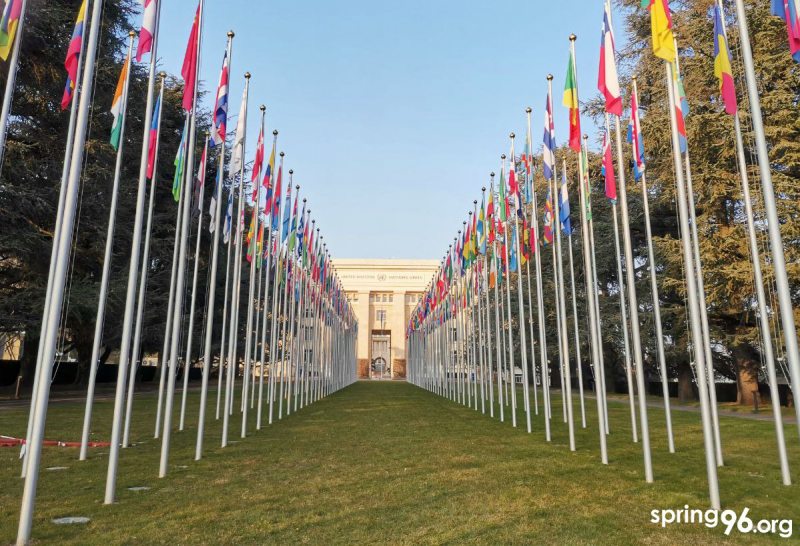HRDs to present alternative report on racial discrimination in Belarus
The 113th session of the Committee on the Elimination of Racial Discrimination (CERD) began on August 5, 2024, to review several countries' compliance with the International Convention on the Elimination of All Forms of Racial Discrimination. The Belarusian authorities are scheduled to present their report on August 15 and 16, with the session being broadcasted.
In addition to the official report from Belarus, several civil society organizations, including the Belarusian Helsinki Committee, Human Constanta, PEN Belarus, and Lawtrend, have submitted an alternative report. This document highlights issues related to racial discrimination that have emerged due to government policies since 2020. It provides a perspective from vulnerable groups that may not be represented in the state’s official report and offers recommendations for improvements. The last set of recommendations was issued by the Committee in 2017.
The alternative report aims to inform the Committee, state representatives, and other stakeholders about the current racial discrimination issues in Belarus that might be overlooked by the official report.
Dynamics of problematic issues
The alternative report by civil society organizations highlights ongoing issues regarding racial discrimination in Belarus, focusing on areas previously identified by the Committee on the Elimination of Racial Discrimination in 2017. The report emphasizes:
-
Lack of Implementation: Most recommendations from the Committee, civil society, and the Universal Periodic Review aimed at combating discrimination have not been implemented.
-
Absence of Legislation: Belarus lacks comprehensive anti-discrimination laws and effective legal remedies for individuals who experience discrimination.
-
Judicial Unpreparedness: Judges are not adequately prepared to handle discrimination cases or apply the Convention, contrary to state claims.
-
Discrimination Against the Roma: The Roma population continues to face discrimination, including ethnic profiling and denial of access to certain medical services.
-
Escalation of Racial Discrimination: Acts of racial discrimination and hate speech, sometimes endorsed by the state, have intensified since 2020.
2020 aftermath
The human rights defenders' report outlines the deteriorating situation regarding equality and non-discrimination in Belarus since 2020, highlighting how discriminatory practices have become systemic, especially against specific national minorities. Their key areas of concern include:
-
Systemic Discrimination: Discrimination has become a part of state policy, especially targeting groups such as Poles, Lithuanians, and Ukrainians, who are considered "external enemies" by the regime.
-
Crackdown on Civil Society: Organizations focused on preserving national cultures and traditions have been dismantled as part of a broader crackdown on civil society.
-
Persecution of Activists: Activists from targeted national minorities face persecution.
-
Reversal in Language Protection: Progress in protecting minority languages has been reversed. Although Belarus was prepared to join the European Charter for Regional or Minority Languages by 2017, since 2023, legislation restricts education in minority languages to separate classes within schools, leading to closures of Polish and Lithuanian schools. Pressure has also increased on organizations offering German and Polish language education.
-
Cultural Suppression: Conditions for participating in cultural life have worsened significantly, with a rating of 1/10 for 2023, reflecting a significant decline. National minorities face discrimination through cultural policies involving censorship, labeling materials as "extremist," and destruction of historical and cultural heritage to align with state narratives. Hostile narratives against these minorities are promoted in media and education.
-
Persecution of Ukrainians: Since Russia's full-scale invasion of Ukraine, Ukrainians in Belarus have been particularly targeted, facing profiling, increased scrutiny, and a de facto ban on Ukrainian culture, which is equated with dissent against the state’s support for Russian policies.
-
Anti-Extremism Legislation: The state has developed extensive "anti-extremist" laws to suppress dissent and restrict the rights and freedoms of individuals labeled as dissenters, using extremism as a pretext.


















